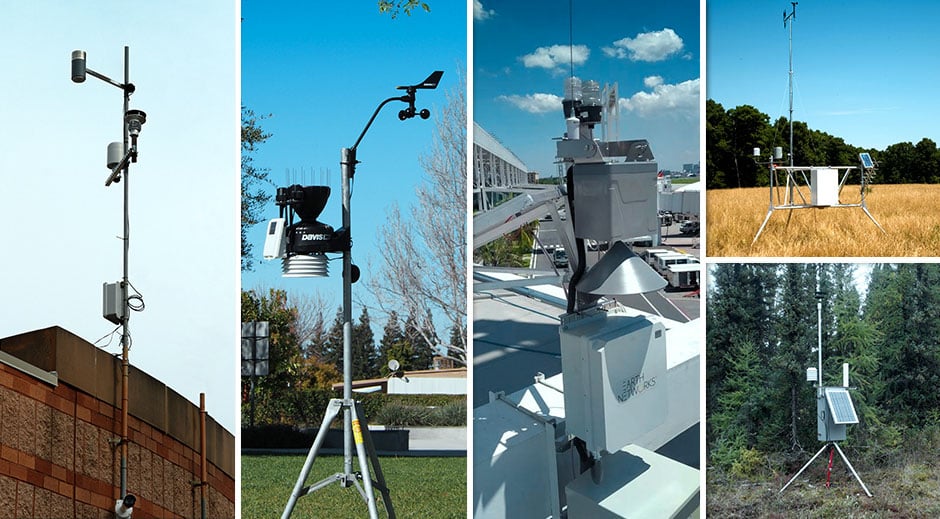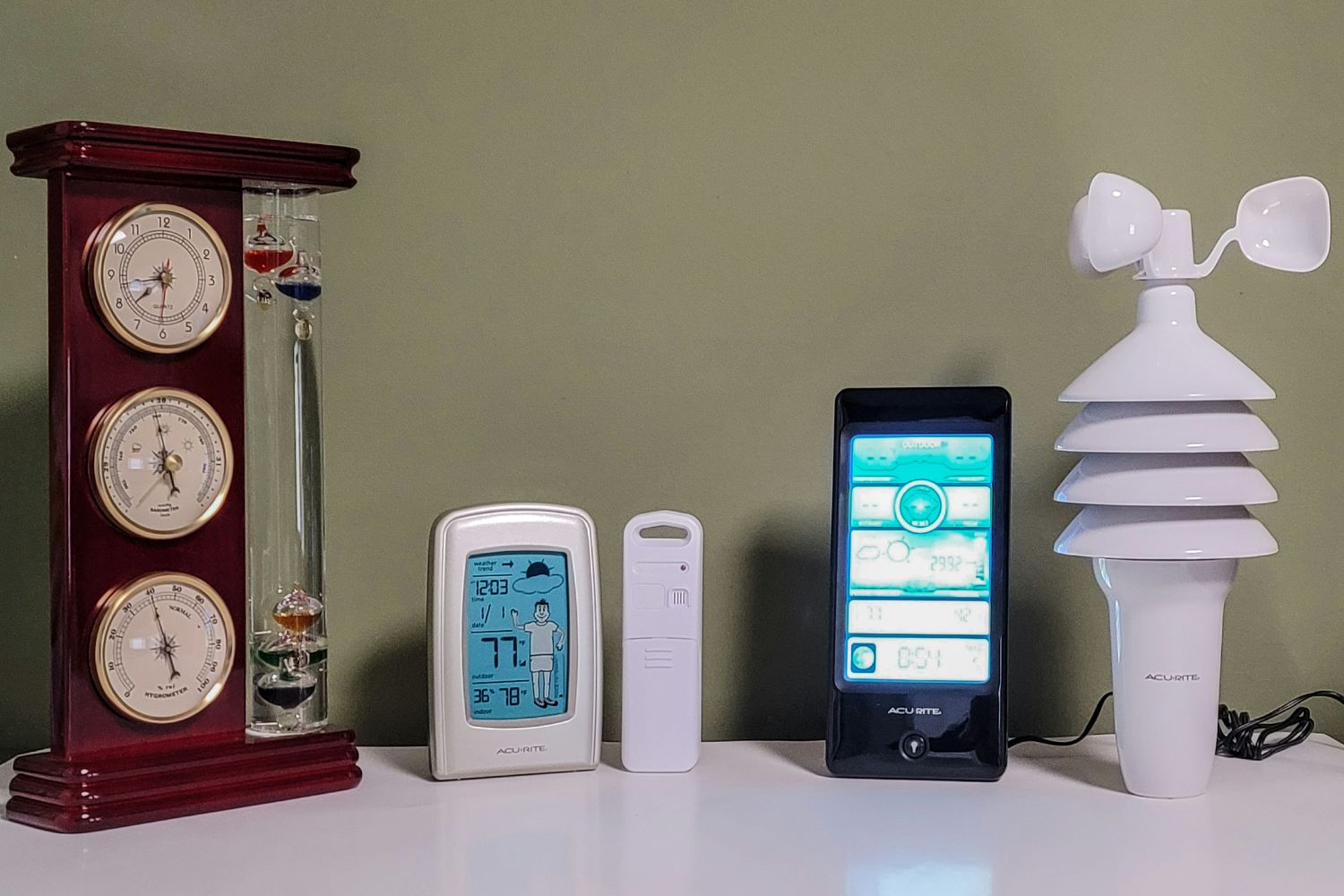Just How Weather Stations Aid in Accurate Weather Predictions and Emergency Situation Readiness
Just How Weather Stations Aid in Accurate Weather Predictions and Emergency Situation Readiness
Blog Article
Maximizing the Conveniences of a Professional Weather Condition Terminal for Accuracy Projecting and Evaluation
In the realm of weather forecasting, the utilization of expert climate terminals plays an important function in getting specific and dependable data for projecting and analysis. From making sure the accuracy of weather condition data to boosting projecting versions and employing innovative data analysis methods, specialist climate terminals provide a wealth of opportunities for decision-making procedures and different sectors.
Importance of Accurate Weather Condition Information
Exact weather data plays an essential duty in various markets, offering vital information for decision-making and risk monitoring. In the energy industry, weather condition data helps anticipate energy usage patterns, maximize manufacturing, and manage prospective risks such as storms or severe temperature levels.
Building and construction tasks are very reliant on weather condition conditions, with exact data enabling better scheduling of jobs and source allocation. Spending in expert climate stations to gather precise and timely data is necessary for markets seeking to boost their decision-making processes and make sure optimal performance.

Improved Forecasting Capabilities
With developments in innovation and information evaluation, climate stations are now geared up to give more comprehensive and specific forecasting capabilities. These improved forecasting capabilities come from the ability of specialist weather condition terminals to accumulate real-time data on numerous atmospheric specifications such as temperature, moisture, wind speed, and rainfall. By continually keeping an eye on these variables, weather stations can produce highly precise temporary and long-lasting projections.
One significant benefit of specialist weather terminals is their capacity to detect refined adjustments in climatic problems that may show forthcoming weather condition patterns - Weather Stations. This capability allows researchers and meteorologists to release prompt cautions for extreme weather events like hurricanes, thunderstorms, or snowstorms, assisting communities prepare and reduce prospective problems
Furthermore, specialist weather terminals frequently incorporate innovative formulas and versions to assess historic data patterns and anticipate future weather condition patterns with better accuracy. These projecting tools make it possible for users to make enlightened decisions based on reputable weather forecasts, whether it's for agricultural preparation, outside event monitoring, or general everyday activities.

Fundamentally, the enhanced forecasting capacities of expert climate stations empower users with valuable insights right into upcoming weather conditions, promoting far better preparation and decision-making in numerous markets. (Weather Stations)
Utilizing Advanced Data Analysis

One trick advantage of utilizing advanced data analysis in expert climate stations is the ability to boost the precision of temporary and lasting weather report. By analyzing historic climate data along with real-time monitorings, climate stations can establish more exact projecting models that take into consideration different atmospheric aspects and variables. This boosted level of evaluation enables meteorologists and researchers to better understand climate patterns, anticipate serious weather occasions, and give more in-depth forecasts to the public.
Applications Throughout Different Industries
The assimilation of specialist climate terminal information discovers substantial applications across varied sectors, impacting operations and decision-making procedures. In agriculture, farmers make use of weather station data to optimize irrigation routines, display crop wellness, and forecast return results. The data help in identifying the optimal planting times, lowering water wastage, and minimizing weather-related dangers.
The transportation field take advantage of weather condition station information by boosting path preparation, managing logistics, and boosting safety actions. Airlines rely upon exact weather prediction to minimize trip hold-ups, avoid disturbance, and make certain traveler comfort. Maritime operations use this data to navigate safely, prevent tornados, and maximize fuel consumption.
Building business leverage weather condition station details to prepare outside activities effectively, prevent weather-related crashes, and reduce job hold-ups. By checking wind rates, temperature variations, and rainfall degrees, building contractors can maximize work schedules and ensure employee security. On the whole, the varied applications of specialist weather condition terminal data emphasize its importance in boosting functional efficiency and educated decision-making across numerous industries.
Improving Decision-Making Processes
Enhanced accessibility to real-time and precise weather condition information considerably boosts the accuracy of decision-making procedures across sectors. By using an expert weather terminal, organizations can pop over to this site make informed choices based upon existing and forecasted climate conditions. This data is particularly critical for sectors such as farming, transportation, emergency, and construction monitoring, where weather plays a significant duty in procedures and safety.
In farming, access to exact weather condition info enables farmers to optimize irrigation timetables, plan planting and harvesting tasks, and alleviate risks connected with severe climate events. Similarly, construction business can much better intend outdoor projects, timetable job effectively, and guarantee the safety and security of their workers by checking weather conditions in real-time.
Moreover, transportation companies can improve course planning, readjust timetables based upon climate forecasts, and enhance overall functional efficiency. In emergency situation management, accurate weather information allows aggressive decision-making, timely reactions to natural calamities, and reliable interaction with the general public to ensure their security. In general, the combination of a specialist weather station into see post decision-making procedures equips markets to make critical and informed choices, eventually resulting in improved results.
Conclusion
Finally, using an expert climate station provides substantial benefits for accuracy forecasting and evaluation. By supplying exact climate data, boosting projecting capabilities, and enabling sophisticated data evaluation, it can boost decision-making processes throughout numerous sectors. This tool is important for optimizing the potential of climate data and ensuring more effective and enlightened operations.
From making sure the accuracy of climate data to improving projecting versions and employing innovative data analysis methods, specialist weather terminals offer a riches of chances for decision-making procedures and numerous sectors. Through the usage of device discovering algorithms, clustering strategies, and anticipating modeling, climate stations can improve their forecasting abilities and supply more precise and timely weather condition predictions.
One key benefit of using sophisticated data analysis in specialist climate terminals is the capacity to boost the precision of long-term and short-term weather projections. By assessing historic other climate information together with real-time observations, climate terminals can create a lot more specific projecting models that take right into account numerous meteorological factors and variables. By utilizing a specialist weather station, companies can make educated decisions based on existing and forecasted weather problems.
Report this page